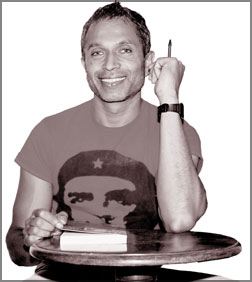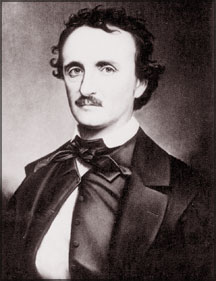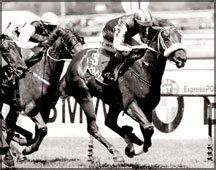
‘I feel compelled to use personal experience’ - Ashok Ferrey
By Sajitha Prematunge
[email protected]
“My car is so full of holes that, when I accompanied my wife to the
hair dresser I discovered that a bird was trying to make a home inside
it.” said the writer.
In spite of the fact that the car was in a pretty dilapidated state,
one head light straining to fall off, Ashok Ferrey said that he takes it
out every single day! He admitted “I see a funny side to everything,
even a funeral!” Reading his short stories it was evident that the wit
and comedy in real life, had seeped into his diction and plot, or was it
the other way around?

An architect by profession, Ashok Ferrey spent much of his early
childhood in both East and West Africa, which provided him with a
setting for many of his stories. After a series of unsuccessful jobs
around London he ended up in Brixton, converting and restoring Victorian
houses.
He finally returned to Sri Lanka, where he is continuing to design
and build houses and is a visiting lecturer at the Sri Lanka Institute
of Architecture.
Ashok’s first book Colpetty People was shortlisted for the Gratiaen
Prize in 2002 in manuscript form, and published to critical acclaim in
December 2004. It remains to date the biggest selling book of adult
English fiction ever published in Sri Lanka by a local author. His
second book, The Good Little Ceylonese Girl was released on December 9th
2006 and was shortlisted for a Gratiaen in the same year.
Describing the difference between Colpetty People and his latest
collection The Good Little Ceylonese Girl, Ashok Ferrey said that the
surface, witty but wicked subtext is present in both collections but the
latter is much ‘darker’ and serious.
“Colpetty People is set on home ground, more ‘frothy’ and much more
centralized.” But he claims that the latest collection has more of what
he wanted to say, although hidden behind layers of humour, irony, satire
and parable.
The latest collection contains bitter-sweet stories of Sri Lankan
life, more personal than the previous ones with the settings ranging
from the North Pole to Sahara. He admitted that the latest collection is
less accessible to the public.
“People don’t really want to read serious stuff. It’s easier for a
writer to move on from a more serious book to a lighter one, but not so
easy the other way round. I prefer to write light pieces but once in a
while you have to do something different.” He believes that comedy and
tragedy are two sides of the same coin. Consequently he has intermingled
a bit of tragedy with comedy in his latest collection.
Speaking of different I feel that Dust, Seedevi, The Ola Ola Club,
Jack Fruit and The Good Little Ceylonese Girl are a refreshing and
somewhat unexpected leap from the satiristic form of the collection.
Vitamin V an allegory, signifying the third rate treatment Sri Lankans
abroad are forced to under go, is also grave.
“Every one in Sri Lanka has someone working abroad. When They go
abroad they change, more often than not, they become more ‘Sri Lankan’
and conservative.” His story Pig is about how Sri Lankans morph when
they go abroad.
Satiristic and downright blunt, Ashok Ferrey criticises the true
weaknesses of Sri Lankan society in a subtle manner. Almost all his
stories are laced with satire. He claims that irony is his major theme,
while his diction explicitly intensifies it. His diction is spontaneous
and naturally falls in line with the humour of the story reinforcing his
wit.
He claims that his intention was to obtain the right degree of satire
without running the risk of sounding sarcastic. He claims that the only
way to expose truth is to laugh at it.
“One way of criticising our own faults is to laugh at them and that’s
the best way to attract the reader’s attention. They will invariably
wonder ‘now why did I laugh?’ We are a very happy go lucky bunch of
people.
Most of us are like children, including me (I have a 28 year old car
full of holes.) Consequently I think the best form - to drive that point
home - for Sri Lankans is comedy.”
Ashok believes that no matter how serious the theme he wishes to
convey, comedy is capable of achieving it. “If I just state the obvious
in plain language they won’t listen.” Although he claims that being
sarcastic was never his intension, he could step on a lot of toes with
his bluntness.
But said that, interestingly enough he has never been rebuked for his
harsh, but camouflaged criticism. “I was worried when Colpetty people
came out. I thought that the readers were going to hate me. But it was
received quite well.”
He says that his stories are better understood when read out aloud.
“I may write and rewrite a sentence till I get the right sound. And
there is a great tendency to lose grammar along the way. I want to write
as if I am reading it for the readers.”
It’s clear that he is in one sense unique, for the manner in which he
uses personal experience in writing. He does not draw from personal
experience, strip it apart and construct a whole new story, but takes
them in chunks and incorporate them in the story line.
Having met him it was easy to draw parallels between his stories and
real life. It was difficult to imagine that ‘Ashok Ferrey’ was any
different from ‘Arishtabotale Pereira’ - his name in the short story
Maleeshya. By way of explanation he said “Most say that using personal
experience is a bad trait. But I feel that if I don’t use it, there
won’t be a ring of truth in them.”
Radical to the very last he implies that he has no intension of
conforming to others expectations. “When I saw the proof of Colpetty
People there were 70 extra commas, put in by the publisher. I fought
each one of them every step of the way, only to find that all of 70
commas were included when it finally came into print.”
Moreover he said that, unfortunately Sri Lankan writers seem to write
for the sake of winning awards. “We are too eager to please. This has a
lot to do with lack of self confidence and an excess of self
consciousness.”
He says that, like the poor relative dressing up the best at a family
get-together - because we have been considering ourselves the poor
literary achievers for so long - we have to be exceptional. Most Sri
Lankan writers, according to him are too focused on the ‘big screen
things’, like the war, tsunami, struggle of the poor, etc...
This is exactly what he tries to expose in his story The tsunami love
story. Rather than focusing on the direct affects of the tsunami, Ashok
Ferrey draws more attention to the mostly disregarded, indirect effects
of the tsunami on Sri Lankan culture, such as the effects of the NGO
workers in Sri Lanka.
“Moreover why do we only want to focus on the negative aspects, when
in fact a lot of tourists actually want to settle down in Sri Lanka.”
Reiterating the fact that this problem arises from an excess of self
consciousness, he said “You have to write as if nobody is watching you,
else you would end, up writing what they want to hear.”
He pointed out that it is a writer’s duty to always portray life as
they see it. Not as judges or westerners see it.

Edgar Allen Poe Best known for Gothic fiction
Edgar Allan Poe was an American poet, critic, short story writer and
the author of such horrible works as “The Fall of the House of Usher”.
He was born in Boston, Massachusetts, on January 19, 1809, second child
of Elizabeth Arnold Hopkins Poe and David Poe, Jr. Both the parents were
professional actors and they died before Poe was three and, John and
Frances Allan raised him as a foster child in Richmond, Virginia.
John Allan, a prosperous tobacco exporter, sent Poe to the best
boarding schools and later to the University of Virginia, where Poe
excelled academically. After less than one year at the University
however, he was forced to leave the University when Allan refused to pay
his gambling debts. He had an elder brother, William Henry Leonard Poe
and a younger sister, Rosalie Poe.

His first collection of poems, Tamerlane, and other poems, was
published in 1827. Poe’s best known fiction works were Gothic, a genre
he followed to appease the public taste. His most recurring themes deal
with questions of death, including its physical signs, the effects of
decomposition, concerns of premature burial, the reanimation of the
dead, and mourning.
Many of his works were generally considered part of the dark
romanticism genre. Beyond horror, Poe also wrote satires, humour tales,
and hoaxes. For comic effect, he used irony and ludicrous extravagance,
often in an attempt to liberate the reader from cultural conformity.
In fact, ‘Metzengerstein’, the first story that Poe is known to have
published, and his first foray into horror, was originally intended as a
burlesque satirizing the popular genre. Poe also reinvented science
fiction, responding in his writing to emerging technologies such as hot
air balloons in ‘The Balloon-Hoax.’
In 1836 Poe married his 13-year-old cousin Virginia Clemm. Over the
next ten years, Poe would edit a number of literary journals including
the Burton’s Gentleman’s Magazine and Graham’s Magazine in Philadelphia
and the Broadway Journal in New York City.
It was during these years that he established himself as a poet, a
short-story writer, and an editor. He published some of his best-known
stories and poems including “The Fall of the House of Usher,” “The
Tell-Tale Heart,” “The Murders in the Rue Morgue,” and “The Raven.”
On October 3, 1849, he was found in a state of semi-consciousness.
Poe died four days later of “acute congestion of the brain.” Today, Poe
is remembered as one of the first American writers to become a major
figure in world literature.
Compiled By Ishara Mudugamuwa
[email protected]


A race horse
My life is a rat race, it’s always under tension,
My blood is boiling, and my heart is beating,
You have to go through it,
It’s your destiny as you are a horse,
Running through obstacles is always your thought,
Being enemies with your siblings, is the worst of all
I say so because
You should be the first
Being the last is not to be blamed
As we all horses shall I explain.
My master’s aim is to win the race
Whereas mine is to see its end,
Participation is something great,
So remember to act as the saying says
Our colour doesn’t matter,
Probably our features the same,
It’s the making on our body I guess,
Can you give me the love I want,
Because that’s all I need to win the race.
After all the beating and hammering through the race,
I’m taken to the stable for a relaxed state,
As I stare at the stars blink at me,
I remember my past memories along with,
Thoughts drifting its way to another hard day.
I wish I had someone to understand me,
To tell all the things that happen to me,
Be proud of my career as a race horse,
And dream of green pastures that await me.
Anishka Dissanayake
A tale
What is a tale?
A dream, a thread,
Of fantasy, and image frail.
A thing to be loved, cherished and read.
It breaks apart,
World and men,
From lands in the heart
Of a distant fen.
It makes us weep
And lust
And sleep
Of things inside our dark minds’ mist.
Life, love, and eternal dreams;
That is what we gain from a story’s seams.
Roshan, Yudhanjaya, Sheran, Anisa, Chaturi
Flowers
Fragrance inspire colourful and soft,
Beauty of flowers is a bright sight.
Wish and worship at the door of God,
The undying sentiment of sincere love.
A healing herbal to a sick in pain,
Breath in deep is a feeling touch.
Bouquet of joy in the hands of a bride,
Garlands in a string is a warm welcome.
Wreath of sorrow in the hour of last,
Showers of flowers spread here and there.
Bloom and fade in day and night
Needs indeed in human life.
Lakshmi Peiris
The balm

Why under the shade of a tree
When I sit with my eyes closed dreamily
Do I feel so close in harmony
With nature, its creatures surrounding me?
The gentle breeze that brushes my cheek,
That touches my soul and keeps at peace
My mind, gives my soul energy
Is a wonderful balm that keeps me at ease.
Krishanthi Anandawansa |
